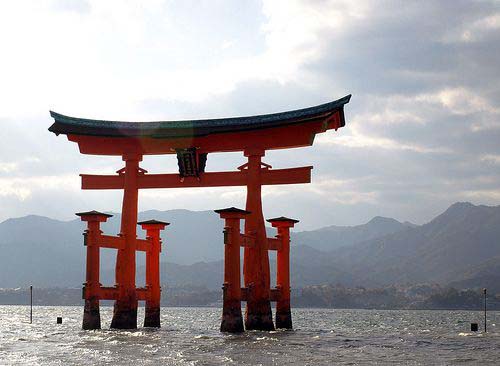Jungian Psychotherapy for Spiritual Crisis 2: Reality

Issues of spirituality, and particularly, around case studies for spiritual crisis, often confront us as questions about what is fundamentally real or important

— questions which often are front and centre in Jungian case studies.
The Quest for the Real
We often deal with disconnect between what others — friends, employers, advertisers, the society as a whole — are telling us is real, and the disquieting sense that there must be something more.
We sense that what we are looking for is missing from what the society as a whole perceives as real or significant. The media and Internet do not often point us to things of substance or lasting value.
Often, case studies for spiritual crisis encounters individuals experiencing a sense of emptiness, flatness, or even “vertigo”. For such individuals, the quest for reality is not something “fluffy” or academic: it can well become fundamentally, even crucially important.
Experiencing Reality
When are we experiencing reality? One indicator would be when we feel most alive or aware.
Meaning, value, significance and even joy: these are the things that make reality — and make it important. This doesn’t mean that experiencing reality in our lives is always painless or easy, by any means. Many experiences connecting us to a sense of spiritual reality may in fact involve pain. But invariably, they bring with them the sense that we are living our lives, in a way connected to something bigger than the consci0us self.
To Live Here and Now
Psychotherapy for spiritual crisis concerns opening up for individuals a way of living that feels full of aliveness, radically in the here and now. A spirituality that is only for the next life is no real spirituality at all.
It’s also more than living in the moment in a shallow way. It involves connection to our unconscious depths, finding meaning in life, and rooting in archetypal reality.
It also entails being rooted in self-awareness of all the differing ways in which we experience life, whether it be through our feeling, our thought, the awareness of our senses, or the promptings of our intuition. Often case studies for spiritual crisis involves opening the “shut down” aspects of ourselves.
To Live My Reality in Depth
Living in a way that is open to everything in us involves being open to myth: to the true story of our lives. Real myth, our own story gives us the true context for who we are, and enables us to know that we belong in our lives.
In the following video, psychiatrist and Jungian Analyst Anthony Stevens reads from his book “Jung: A Short Introduction“:
“C.G. Jung and Reinvesting in Our Real Life”
The real healing that emerges from the case studies of spiritual crisis entails the sense of being truly rooted in my life. It is connected with my sense of feeling at home in my life and in the world… that there is a rightness to my being here and now.
Jungian case studies for spiritual crisis involves opening to the call of my deepest being,
[cta]
PHOTO: © Bortn66 | Dreamstime.com VIDEO: “Jung: A Very Short Introduction” © Anthony Stevens 1994

jamenta
RT @BrianCollinson: I invite you read my latest, if you haven’t… http://t.co/pjuS0NSK “Jungian Psychotherapy for Spiritual Crisis 2: Reality” Please retweet!
Brian C
Thank you for RTing this post on the issue of reality in connection with spiritual crisis, John. I’m very glad if you found it meaningful.
mgido
RT @BrianCollinson: I invite you read my latest, if you haven’t… http://t.co/pjuS0NSK “Jungian Psychotherapy for Spiritual Crisis 2: Reality” Please retweet!
Brian C
Thank you for RTing the link to this post on Twitter, Maggie. I’m very glad that you found it meaningful. I feel that this aspect of reality is fundamental to understanding the nature of effective psychotherapy for spiritual crisis.
jamenta
“This doesn’t mean that experiencing reality in our lives is always painless or easy, by any means. Many experiences connecting us to a sense of spiritual reality may in fact involve pain.”
Such an important point here.
Brian C
Thank you for your comment, John. I agree with you that this is a very important point, and it’s one that isn’t always understood. Much supposedly “spiritual” writing would have us believe that the experience of spiritual life is just a matter of going from peak experience to peak experience. In actual fact, there are profound human experiences that involve a sense of reality and meaning, but which nonetheless involve an experiencee of the painfulness of life. We need spirituality that helps us to find a sense of meaning in the midst of life’s pain, if it is to have any genuine reality and validity. Again, thanks very much for your thoughts.
ohhkt1
RT @BrianCollinson: Please read my latest on therapy & spirituality, http://t.co/pjuS0NSK “Jungian Psychotherapy for Spiritual Crisis: Reality” Please retweet!
pythiapeay
RT @BrianCollinson: Please read my latest on therapy & spirituality, http://t.co/pjuS0NSK “Jungian Psychotherapy for Spiritual Crisis: Reality” Please retweet!
patrickmccurry1
RT @BrianCollinson: Please read my latest on therapy & spirituality, http://t.co/pjuS0NSK “Jungian Psychotherapy for Spiritual Crisis: Reality” Please retweet!